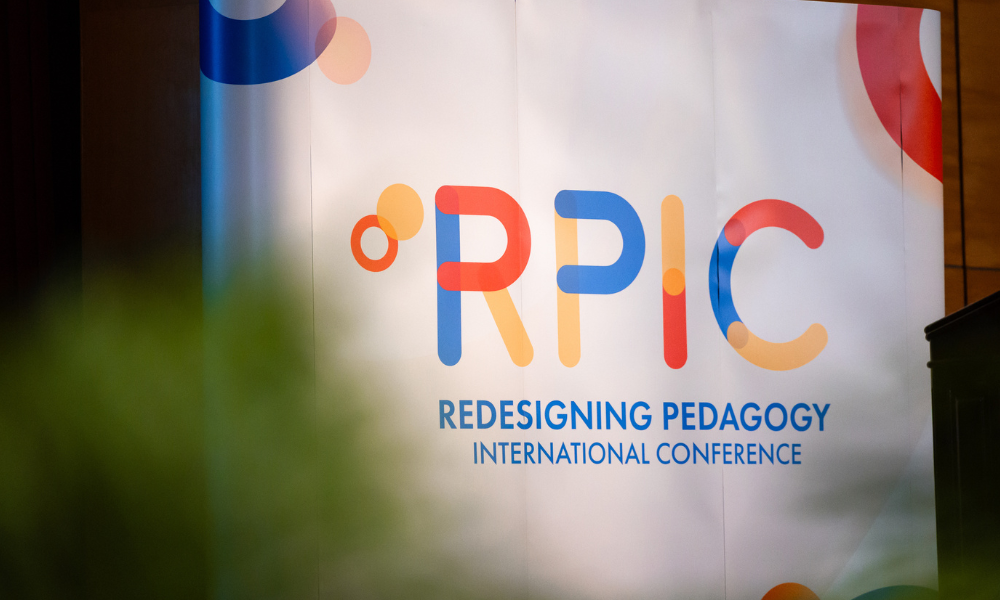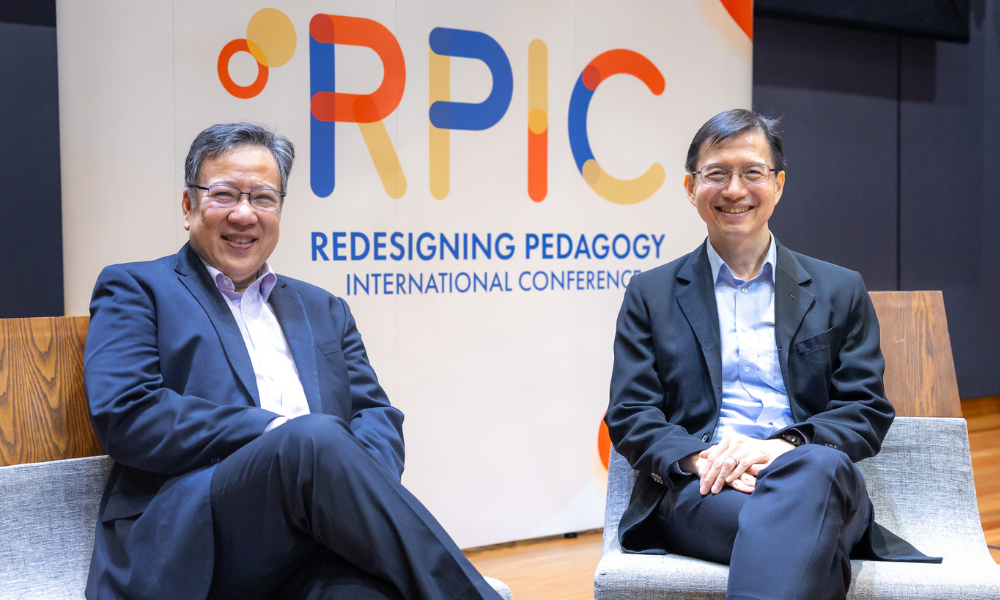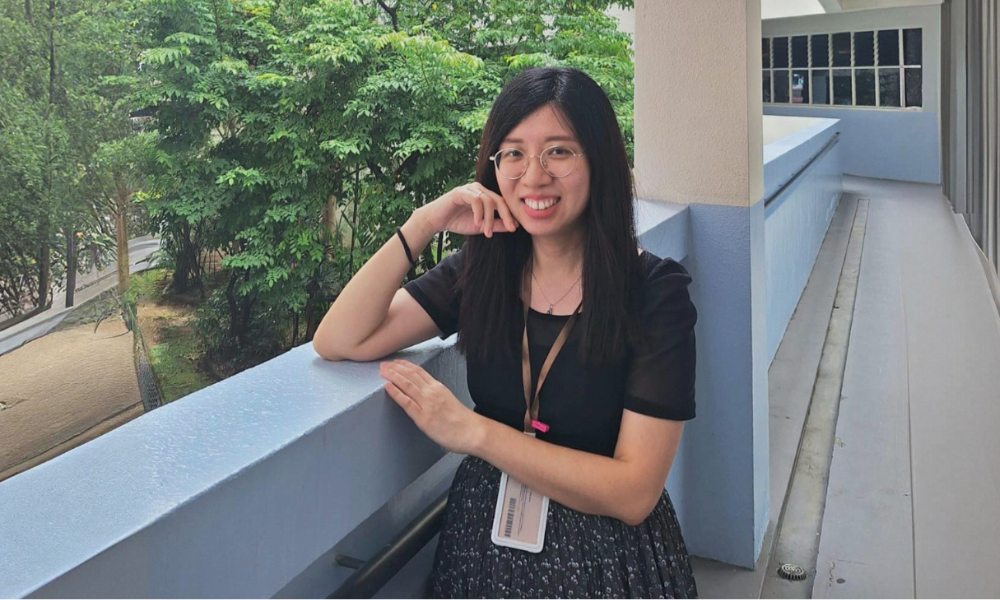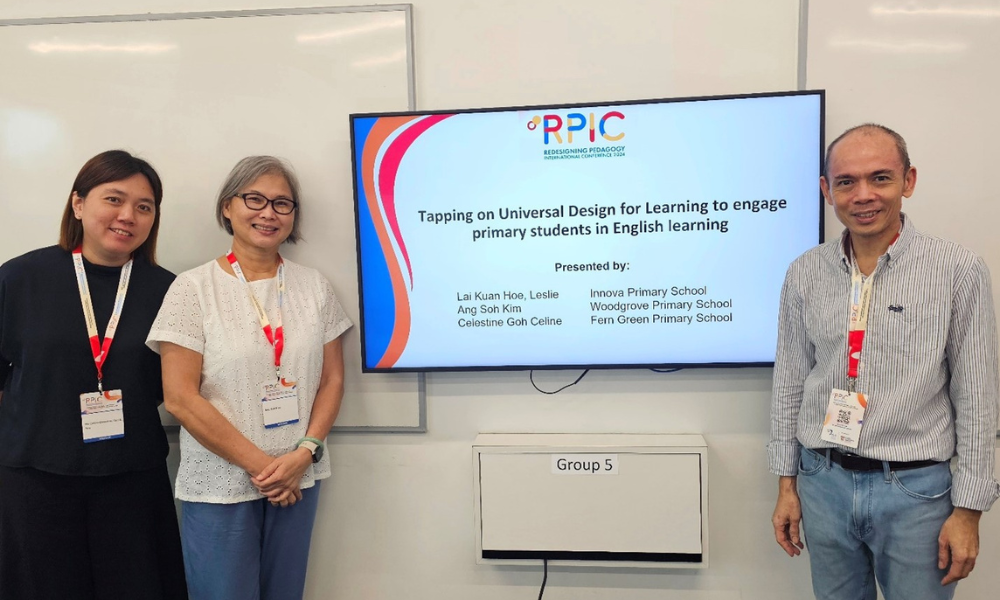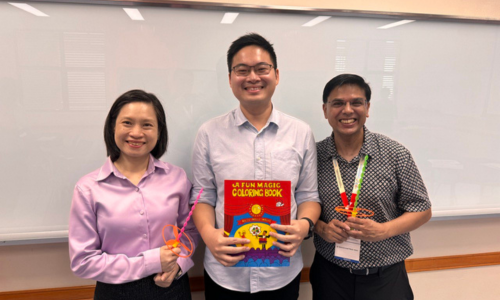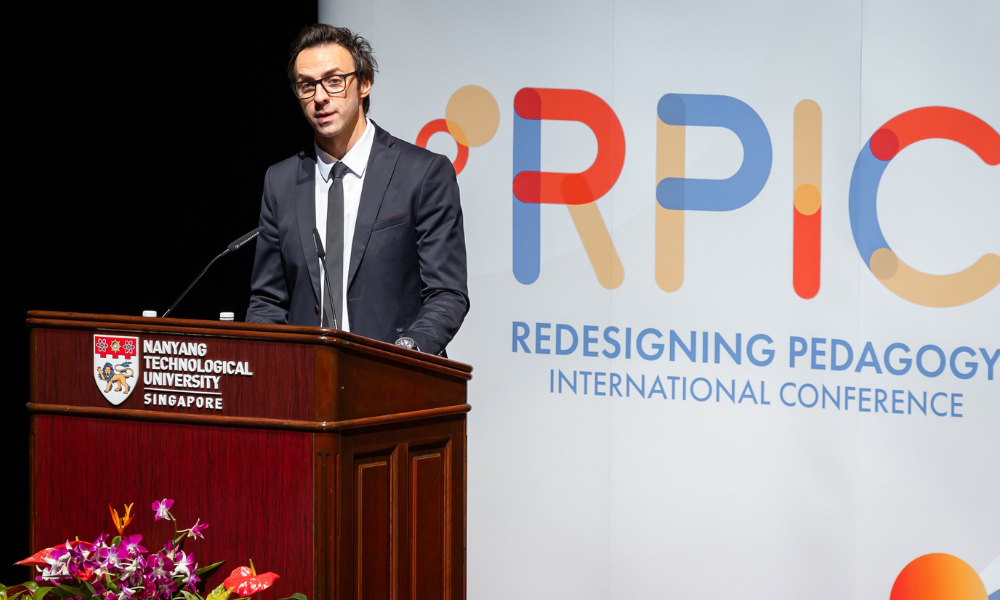Inclusiveness within and the Inclusion of Persons with Special Needs
An editorial by the Guest Editor of this issue, Dr Levan Lim, Associate Professor and Head of the Early Childhood and Special Needs Education Academic Group at the National Institute of Education, Singapore.
A Home for Everyone

Levan hopes that Singapore will draw valuable lessons from L’Arche on how to create sustainable inclusive communities for individuals with special needs.
In 1964, a man named Jean Vanier invited two persons with intellectual disabilities from an institution to make their home with him in a stone-built house in Trosly-Breuil, a village north of Paris, France.
This was the beginning of L’Arche (the Ark in French), a community where persons with and without intellectual disabilities live together to create and experience a sense of acceptance and belonging.
Coming from a privileged background – his father was then Governor-General of Canada – Jean Vanier’s intentional act of sharing his life with individuals considered to be vulnerable and marginalized by society has inspired many others to do likewise. Today, there are 147 L’Arche communities in 35 countries.
At L’Arche, people with disabilities are the core members around which community is intentionally built. This notion of community is guided by the belief that persons with disabilities have gifts to share which can be understood, appreciated and affirmed through being in relationship with them.
An often-mentioned significant “heartware” gift received by persons without disabilities (known as Assistants) at L’Arche is recognizing, accepting and welcoming their own human vulnerability, thus becoming more human.
In 2015, Jean Vanier was featured in The Straits Times when he won the US$1.7 million Templeton Prize for his “exceptional contribution to affirming life’s spiritual dimension, whether through insight, discovery, or practical works” (Lim, 2015).
The newspaper article stated that “Both the prize and its latest recipient are signs that point to people’s longing for progress beyond the material, the kind of progress that often finds expression in caring for others, especially the vulnerable. And that seems to be the journey Singapore has embarked on as it matures as a society and nation” (Lim, 2015).
Singapore as an Inclusive Society
Jean Vanier’s insights and work have particular relevance to Singapore as it seeks to become an inclusive society for all especially the vulnerable and those at risk of being marginalized and excluded.
A survey by the Lien Foundation in 2016 found that while 7 out of 10 Singaporeans support the idea of inclusion, only 3 in 10 agree that Singapore is an inclusive society for children with special needs. On top of that, only 1 in 10 Singaporeans expressed confidence in interacting with children with special needs (Lien Foundation, 2016).
Among parents surveyed, only half (50%) are comfortable with having their own children placed next to a child with special needs in the classroom, and 64% believe Singaporeans are willing to share public spaces but not interact with the special needs community.
In a series of surveys conducted by the National Council of Social Service in 2015, 62% of the 1,000 people with disabilities surveyed do not feel they are socially included, accepted or given opportunities to achieve their potential. Only 36% of the public polled would be comfortable with being close friends with a person with a disability. To put it simply, people with disabilities feel the public sees their differences as limitations for which they need protection and different treatment (Tai, 2016).
These findings are disappointing considering the vast amount of unprecedented attention and effort Singapore has invested over the past decade through policies, education, infrastructural improvements (e.g., public transport), campaigns, greater supports to include students with disabilities within mainstream schools, and two consecutive Enabling Masterplans (at the time the Lien Foundation survey was released) to chart the roadmap towards an inclusive society for people with disabilities. In addition, Singapore ratified the United Nations Convention on the Rights of Persons with Disabilities in July, 2013. (MSF, 2013)
Building Heartware, Not Just Hardware
While Singapore has made great strides in building its systemic “hardware” through policy and resource developments to promote the inclusion and rights of persons with special needs within mainstream society over the past decade, how can we achieve greater progress in cultivating the “heartware” of inclusiveness within people? How can the “heartware” of a person be more open and inclusive of those who are more vulnerable?
The overriding message from L’Arche is that the best safeguards for persons with disabilities are relationships and community. There are valuable lessons to draw from L’Arche on how to create sustainable inclusive communities within Singapore for individuals with disabilities or special needs, whether they be classroom, school, work or home communities.
These lessons address both the “inner” or “interior” lives of individuals and the “outer” or “external” supports, structures, services and systems that can promote inclusiveness within self and inclusion within society respectively, and the interrelationship between these two modes of change.
“While Singapore has made great strides in building its systemic ‘hardware’… how can we achieve greater progress in cultivating the ‘heartware’ of inclusiveness within people?”
– Levan, Early Childhood & Special Needs Education Academic Group, NIE
Being Inclusive Within
This SingTeach issue features teaching, practice, research and life stories related to the “inner” work on becoming more inclusive within and the “outer” work of including persons with special needs through practical strategies and interventions, supports, pathways and systems.
In other words, inclusion in society needs to be upheld and supported by people who are inclusive within. The seeds of possibilities for genuine change in becoming an inclusive society lie within the individual and imply, at the core of such change to open and offer a hospitable space within for “the other”, personal interior growth and transformation.
Education, by virtue of its role in preparing the young to contribute to society and thereby shaping society itself, can be a mentoring community for the young to engage in the inner transformative work of deepening the meaning and purpose of their lives, their chosen professions and their work.
Such “inner work” has been referred to as the “heart” of higher education by Palmer, Zajonc and Schribner (2010) to understand, encourage and support the quest of young adults for deeper meaning, self-understanding and purpose in their lives.
Preparing Our Future Educators
In addition to acquiring the necessary knowledge and skills to work with students with special needs, such “inner work” is part of the education and training of trainees enrolled in the Diploma in Special Education (DISE) programme offered by the Early Childhood and Special Needs Education (ECSE) Academic Group at the National Institute of Education.
The DISE programme educates and trains both teachers working in special education schools and Allied Educators (Learning and Behavioural Support) who are support personnel for students with special needs at mainstream schools.
Trainees are intentionally engaged in clarifying their personal values, beliefs, assumptions, world views and meanings related to disability, and their chosen professional work within the “Introduction to Special Education” course offered in the first semester of the programme.
They are provided with the frameworks and tools to deconstruct their own implicit ideas, beliefs and assumptions about disability, and the sources of influence on how they have been “introduced” to disability in Singapore thus far in their lives.
As the trainees grow in their awareness and learn to interrogate deeper systemic and societal conditions that affect the opportunities and participation of Singaporeans with disabilities – such as negative stories, a focus on deficits and labels, and a separate education system that led to limited opportunities to interact with and develop relationships with peers with special needs during their school years – what resonates on a personal level with the trainees is the impact of the larger social context on the construction of their own individual attitudes towards disability.
The Idea of Hope, Trust and Acceptance
At the core of such inner deconstruction work is a personal encounter with deeply held values, beliefs, assumptions, meanings and images about being human and how they affect the valuing of persons with disabilities.
Through a deepening of self-understanding especially in terms of their perspectives and values regarding human worth, the trainees also learn to accept their own human vulnerability and extend that acceptance to persons with disabilities.
Reconstructing new meanings, beliefs and values about being human, human vulnerability and human worth in relation to self and others is a path inward towards interior growth and personal transformation that can lead to greater inclusiveness and a greater capacity for love and care for others.
As a result, there is more “heartware” within, to include, share with, or give to others. As the adage goes, “one cannot give away what one does not possess within”.
“Through a deepening of self-understanding especially in terms of their perspectives and values regarding human worth, (they) also learn to accept their own human vulnerability and extend that acceptance to persons with disabilities.”
– Levan, on the “inner work” training that trainees undergo in the Diploma in Special Education (DISE) programme
References
Lien Foundation. (2016). Inclusive attitudes survey part 1: Views of the general public. Retrieved from https://www.lienfoundation.org/sites/default/files/FINAL%20-%20Inclusive%20Attitudes%20Survey%20Part%201_30May16.pdf
Lim, L. (2015, April 1). Life lessons the weak can teach the strong. The Straits Times. Retrieved from https://www.straitstimes.com/opinion/life-lessons-the-weak-can-teach-the-strong
Palmer, P.J., Zajonc, A., & Schribner, M. (2010). The heart of higher education: A call to renewal. San Francisco, USA: Josey-Bass.
Tai, J. (2016, June 3). People with disabilities in the spotlight. The Straits Times. Retrieved from https://www.straitstimes.com/singapore/health/people-with-disabilities-in-the-spotlight
Ministry of Social and Family Development (MSF). (2013, July 19). Singapore Ratifies UNCRPD. Retrieved from https://www.msf.gov.sg/media-room/Pages/Singapore-Ratifies-UNCRPD.aspx

